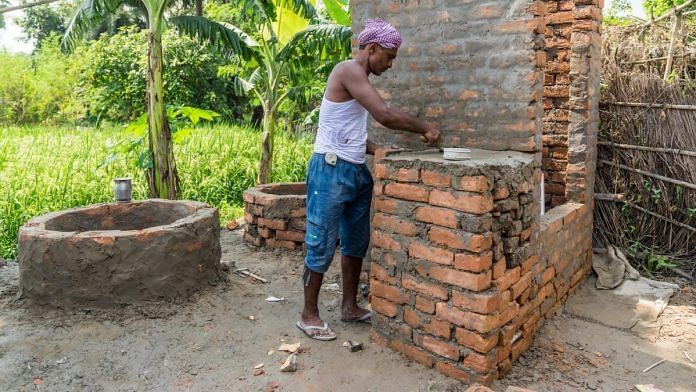Outcomes of a government programme are limited to target achievements. Once a village is declared ODF, attention towards it is likely to reduce. This creates a risk of slipping back into old habits.
Historically, social changes are carried out by visionary and courageous social reformers and leaders. At some point, the government enters (or is forced to enter) and makes laws and regulations for social change.
Where does the issue of sanitation stand? At an individual level, everyone detests gandgee. However, at a collective level, it is considered someone else’s responsibility. It has rarely become a critical public issue, although there are exceptions, such as Sant Gadge Baba and Sant Tukdoji Maharaj, who, half a century ago, travelled from village to village, spreading the message of sanitation.
Government programmes, however, have primarily been regulatory – levying fines if someone goes out to defecate – or focused on constructing toilets. Rarely have governments taken on roles, which involve changing the behaviour of people at a mass scale. Change of behaviour is a leadership task, as shown by Prime Minister Narendra Modi and young collectors, and ably supported by local-level leadership.
However, addressing sanitation through a government programme has some limitations. One, life of the project is limited to the government scheme. Swachh Bharat kept a goal of becoming swachh by 2019. Sanitation is a habit. Will 1.25 billion people of India imbibe this habit by 2019? If not, will efforts to nudge them stop after 2019? Two, outcomes of a government programme are limited to target achievements. Once a village is declared ODF (open-defecation free), attention towards that village is likely to reduce. This creates a risk of slipping back into old habits.
Three, government programmes may force upon people an issue, which may not be a priority for them. For example, a village may want a school teacher or the water supply issue to be taken up before it addresses sanitation. The programme, however, may unnaturally impose its own priority on people. Four, a government programme is ‘external’ to a village because it is often conceived at a higher level, with little involvement of locals in the implementation. Last, while a government programme focuses on one sector – sanitation – development issues are often inter-connected. Sanitation is closely linked to issues of water, gender, inclusion, child upbringing, and empowerment. It is difficult for a government programme, seeking specific outcomes in a sector, to delve deep into other inter-connected issues.
Keeping these limitations of a government programme in mind, is it wise to leave sanitation to natural factors, and wait for some social reformer or leader to effect a change? Or should we wait for socio-cultural conditions to change, and believe that sanitation will get addressed suo moto when people come out of poverty and other infrastructural issues get redressed?
This may not be a wise course because such changes are unpredictable. And, even if one argues that such changes are predictable, these would take inordinately long time to come about. And, sanitation should not wait for that long.
The next best course, therefore, is to take advantage of the political leadership – the most easily recognised form of leadership at a mass level – championing the cause of sanitation, and nudge this social change through a government-driven programme. However, this government-led programme will be sustainable if its limitations are understood and addressed.
This means that the programme gets implemented as a people’s movement, where local villagers are the key players, effecting change at the village level, and the government’s role is restricted to providing leadership. Such a programme will also restrain itself from being forceful, and only nudge people skillfully. The programme will be visionary and beyond targets. It will assume the role of a movement, which leaders from all sections of society can join. It will stick to achieving clear and specific outcomes, and not mere outputs. Finally, it will carry the seeds of continuation beyond the programme period to address remaining work and challenges.
Nipun Vinayak is former director, Swachh Bharat Mission (Gramin), Government of India. Views expressed are personal. His forthcoming book ‘Deep in Shit’ explains the various facets of the programme. He can be contacted at vinayaknipun@gmail.com.




Honourable Prime minister. Should be congratulated for swachh bharat mission.i thinks it is the best programme of his government and first national leader after mahatma gandhi and acharya vinoba bhave to make it a prority so should be mr nipun vinayak.he brought about a radical mindset in our district jalna when he was a young CEO of jalna district.he would be up every morning visiting far flung villages requesting villagers ro avoid open defecation.
In a democratic liberal country I am not sure its the govt job to potty train the population